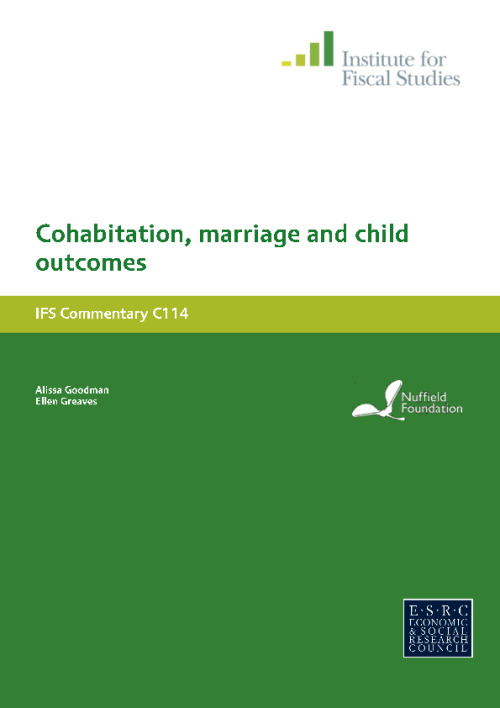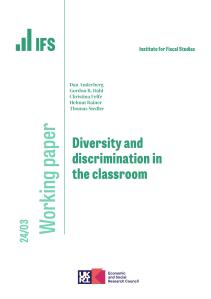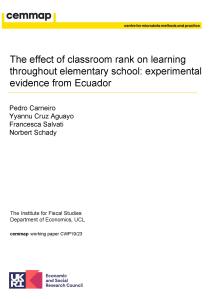Downloads

comm114.pdf
PDF | 1 MB
It is well known that children born to married parents achieve better outcomes, on average, both at school and in terms of their social and emotional development, than children born into other family forms, including into cohabiting unions. This Commentary documents in some detail how children's cognitive and social development differs between married and cohabiting parents, and provides a preliminary assessment of the extent to which such differences might be due to a causal effect of marriage itself. In so doing, it aims to inform a policy debate on the merits of encouraging individuals to enter marriage before they bear children, which has intensified in the run-up to the forthcoming general election.
Authors

Research Fellow University College London
Alissa is an IFS Research Fellow and a Professor of Economics and Director of the Centre for Longitudinal Studies at the UCL Institute of Education.

Research Fellow University of Bristol
Ellen, who was a Senior Research Economist at IFS and is now a Research Fellow, is a Max Weber Fellow at the European University Institute.
Report details
- DOI
- 10.1920/co.ifs.2010.0114
- Publisher
- IFS
Suggested citation
Goodman, A and Greaves, E. (2010). Cohabitation, marriage and child outcomes. London: IFS. Available at: https://ifs.org.uk/publications/cohabitation-marriage-and-child-outcomes (accessed: 30 June 2024).
More from IFS
Understand this issue

What has been happening with university finances?
27 June 2024

Election Special: Is there a 'conspiracy of silence' between both parties?
6 June 2024

What does the Conservative's higher education announcement this week mean for apprenticeships and 'low-value' university courses?
1 June 2024
Policy analysis

Free breakfast clubs in schools: what Labour’s plans would mean for pupils and families
25 June 2024

The uncertain course for school and college funding over the next parliament
19 June 2024

High-skilled apprenticeships have high returns – but funding via a ‘crackdown’ on higher education courses is challenging
29 May 2024
Academic research

Higher Education Access and Funding: challenges and policy options

Diversity and discrimination in the classroom
12 February 2024

The effect of classroom rank on learning throughout elementary school: experimental evidence from Ecuador
8 August 2023